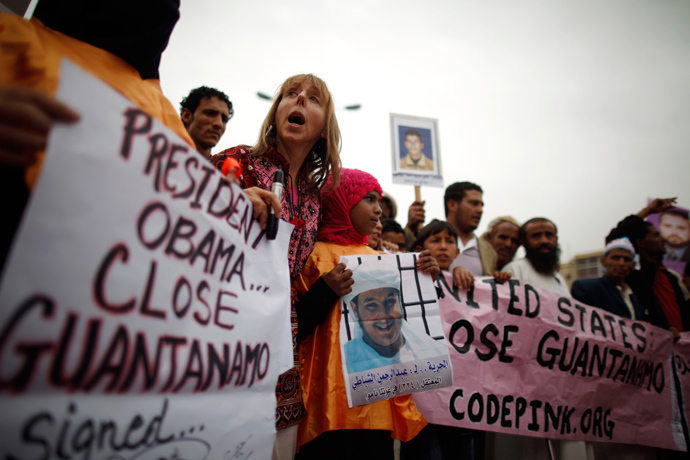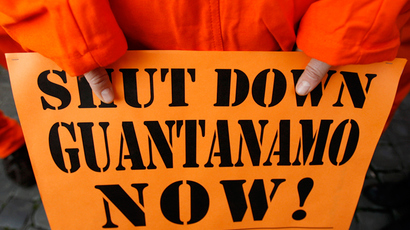Gitmo indefinite detainees to have cases reviewed ahead of Senate hearing on prison shutdown
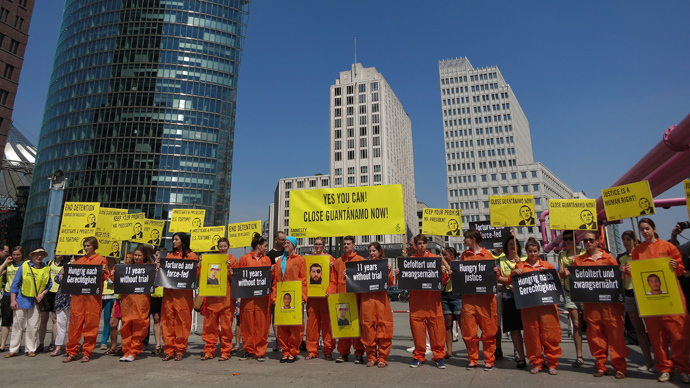
Lawyers of Guantanamo prison detainees have been notified by a US official that the men who can neither be prosecuted nor released will have cases reviewed to decide on their indefinite detention. It comes days before a Senate committee hearing on Gitmo.
Follow RT’s day-by-day timeline of the Gitmo hunger strike
According to an email to attorneys from periodic review
secretariat director retired Navy Rear Admiral Norton C. Joerg,
which was cited by investigative reporter Jason Leopold, “a
new Periodic Review Board (PRB) process will review the continued
detention of certain detainees to assess whether continued law of
war detention is necessary to protect against a continuing
significant threat to the security of the United States.”
The notification published by Leopold on the The Freedom of
the Press Foundation website comes some two years after the US
President Barack Obama signed an executive order to form a parole
board to begin reviewing the prisoners’ cases.

The White House administration has claimed that the prisoners can
neither be prosecuted nor released either because the evidence
against them was obtained through torture, or because they are
still too dangerous to release.
This is despite the fact that 86 of the 166 prisoners at
Guantanamo have already been cleared for release. Now, after more
than a decade of detention for some of the detainees, they will
finally have their cases reviewed to determine whether they
should still be indefinitely detained.
The periodic review board would be “composed of senior level
officials from various U.S. government agencies,” according
to Joerg. It will not address whether the Gitmo prisoners’
“law of war” detention is legal, but will rather determine
the level of “threat” for each individual, and decide if
their detention needs to continue.
“Detainees receiving hearings will be notified by a Personal
Representative assigned to assist them in the process,” Joerg
wrote.
Moreover, according to Obama’s executive order cited by Leopold,
they must be provided with an “adequate notice of the reasons
for continued detention,” and shall be permitted to present a
written or oral statement, introduce relevant information and
answer any questions posed by the PRB, as well as to “call
witnesses who are reasonably available and willing to provide
information that is relevant.”
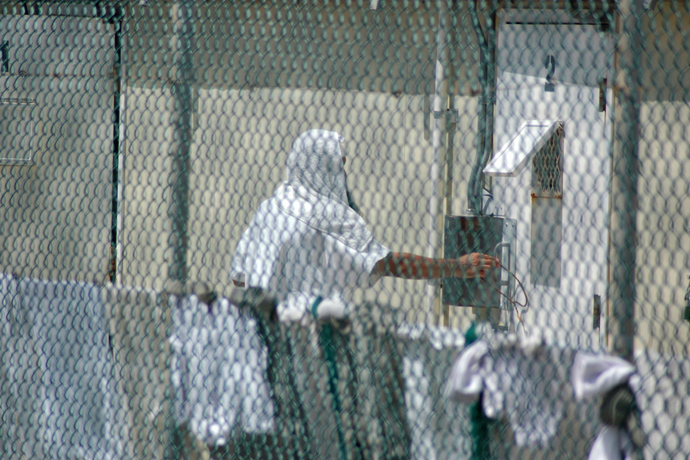
The announcement coincides with a Senate Judiciary subcommittee
hearing on Guantanamo, which is scheduled to take place
Wednesday.
The hearing titled “Closing Guantanamo: The National Security,
Fiscal, and Human Rights Implications” will be the first
significant hearing on the US offshore prison since 2009, Leopold
notes.
The latest developments come amid the unceasing hunger strike by
Guantanamo prison detainees, in which 75 detainees are currently
designated as hunger strikers, with more than a half of them
subject to a painful force-feeding procedure twice a day.
The number of hunger strikers is said to have decreased since the
start of the Muslim holy month of Ramadan after the prisoners
have been given the opportunity to return to communal living and
pray together during the month-long fast.
While commending the move “giving these men a second
look,” some attorneys for Guantanamo detainees remained
skeptical of the US government’s motivation.
“What’s surreal about this is that nobody is going to have new
information about what happened 11 or 12 years ago,”
human rights attorney David Remes told Leopold. Remes represents
more than a dozen Gitmo detainees.
Speaking to Leopold, Remes said he expects the accusations that
their clients “went to an al-Qaeda training camp” will
likely remain the same, while it is unclear how the defense will
be able to come up with any “new information.”
However, he said, “we’ll do everything we can to argue that
the detainee should be approved for transfer.”
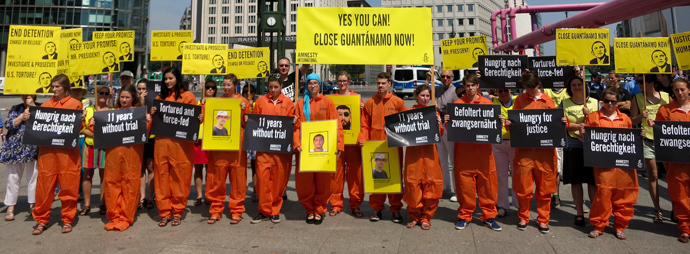
President Obama promised to close Guantanamo as part of his
election campaign in 2008 and recently, Obama suggested
“redoubling efforts to close the prison at Guantanamo” in
his Berlin June 19 speech.
However, no concrete steps have yet been taken to facilitate the
transfer of those Guantanamo detainees who have already been
cleared for release, and no steps been taken to solve the cases
of the others.
Meanwhile, international human rights organizations have documented numerous abuses of Gitmo prisoners including sensory deprivation, prolonged isolation, 20-hour interrogations, stripping and forcible shaving.
Most notably, the practice of force-feeding has been branded a
“gross abuse of human rights” by Amnesty International.
The group has also been calling on the US government to give the
detainees at Guantanamo fair trials in US federal courts and
charge them or release them immediately.
On June 19, over 150 doctors and medical professionals signed an
open letter to President Obama calling for the hunger strikers to
receive independent medical care. Terry Kupers, a psychiatrist
and consultant for Human Rights Watch, has warned that if the
hunger strike continues, the damage to those starving themselves
will be irreparable.
